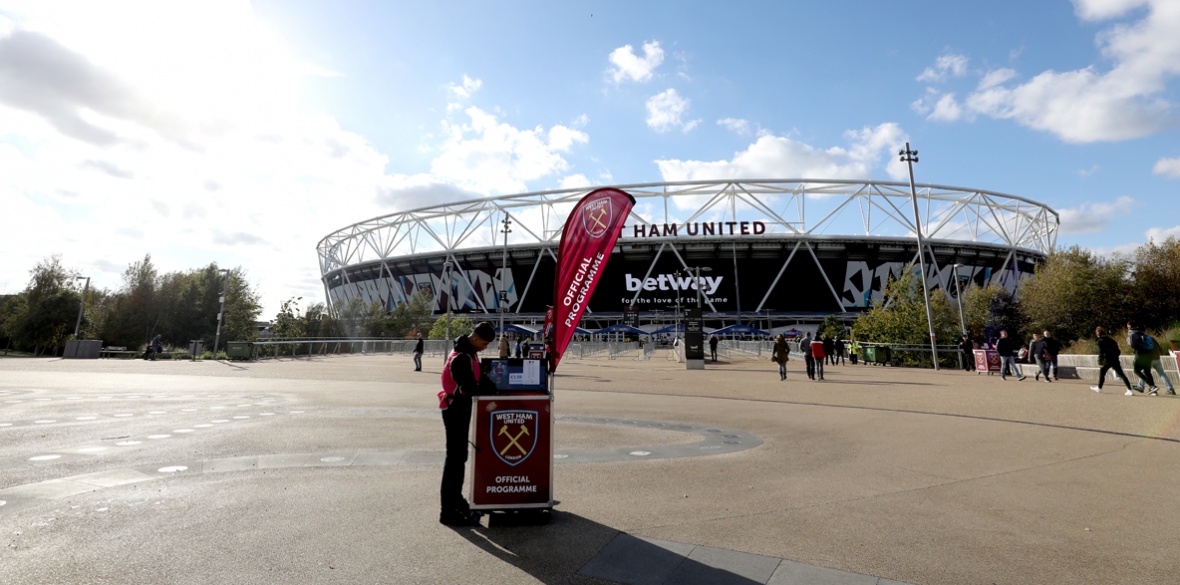This is the last article you can read this month
You can read more article this month
You can read more articles this month
Sorry your limit is up for this month
Reset on:
Please help support the Morning Star by subscribing here
COMMUNITY organising charity Citizens UK are demanding Premier League football clubs end longstanding poverty pay at their clubs, having spent billions on new players during the transfer window.
The period to sign new players for the upcoming season, which kicks off tonight, ended yesterday evening at 5pm — at the start of the month Premier League spending was at was £922 million.
The top flight of English football is a multibillion-pound industry, with clubs making a combined £4.2 billion last year alone.
However, matchday staff are paid a pittance, with current wages not enough to cover the cost of living.
A report published by Citizens UK last year revealed that though clubs like Manchester United recorded annual profits of £57m, an estimated 42 per cent of all workers in sports clubs and facilities currently earn below the real living wage and are struggling to make ends meet for themselves and their families.
Of the 20 current Premier League clubs, only Everton, Liverpool, Chelsea and West Ham are accredited by the Living Wage Foundation.
Citizens UK director Matthew Bolton said: “Premier League clubs have had years to fix this, yet we are once again starting a new football season with employees at 16 clubs left on the breadline. It’s not right when clubs are splashing out record fees on players.”
“Today we’re urging Premier League clubs dragging their feet to join Liverpool, West Ham, Everton and Chelsea, do the right thing, step up and pay the real living wage for all workers.”
Citizens UK revealed that despite calls from community leaders and stadium workers themselves, Manchester United have failed to act on calls to pay the living wage.
This comes despite the fact that Manchester United broke the world record transfer fee for a defender last week after completing a £80m deal for Harry Maguire, who is now the most expensive English player in football history, and have spent a further £70m on defender Aaron Wan-Bissaka and winger Daniel James — they recouped a further £75m yesterday with the sale of Romelu Lukaku to Inter Milan.
An Old Trafford cleaner, who wishes to remain anonymous, said: “I work as a cleaner at Man United and I currently get paid £7.80 per hour. At the moment I struggle to put food on the table for my family and I often have to have cut-price meals.
“Considering the amount of money in football, it would be great to see the club paying all their staff a fair and decent wage.”
With calls for both United and Manchester City to pay non-playing staff a better wage, the Catholic Bishop of Salford Revd John Arnold criticised the two footballing giants for losing touch with their communities.
“Football clubs have a rich history in our communities and the Premier League has become a global export,” he said.
“Yet too often clubs seem to have lost touch with the lives and struggles of workers and their families. Solving poverty can’t be left to faith and civil society alone and big clubs and their wealthy owners must do their bit.”
Championship club Luton do pay their staff a living wage and CEO Gary Sweet slammed teams up and down the English football pyramid for for not “ensuring staff are living above the poverty line.”
He said: “We became the first club in professional football in England in December 2014 to become an accredited employer — yet five years on there are still only seven clubs in total in the UK that can call themselves one.
“We hoped that our commitment would have a knock-on effect across the leagues, which it has slowly done, but given the amount of money that is now in the Premier League and the EFL, it is a sorry state of affairs to see clubs aren’t ensuring staff are living above the poverty line.
“As a business we pride ourselves on being a key part of the local community and it would it be wrong on a fundamental level to label ourselves as inclusive if staff, many of whom are Lutonians, were being paid an amount that sees them live below the poverty line.
“Paying the living wage goes a long way to ensuring that staff are happy in their work and that reflects in the loyalty shown by staff. Success on the pitch should reflect off it, and behind the scenes we certainly are in a good place with the members of staff we have.”
 Kadeem Simmonds
Kadeem Simmonds






